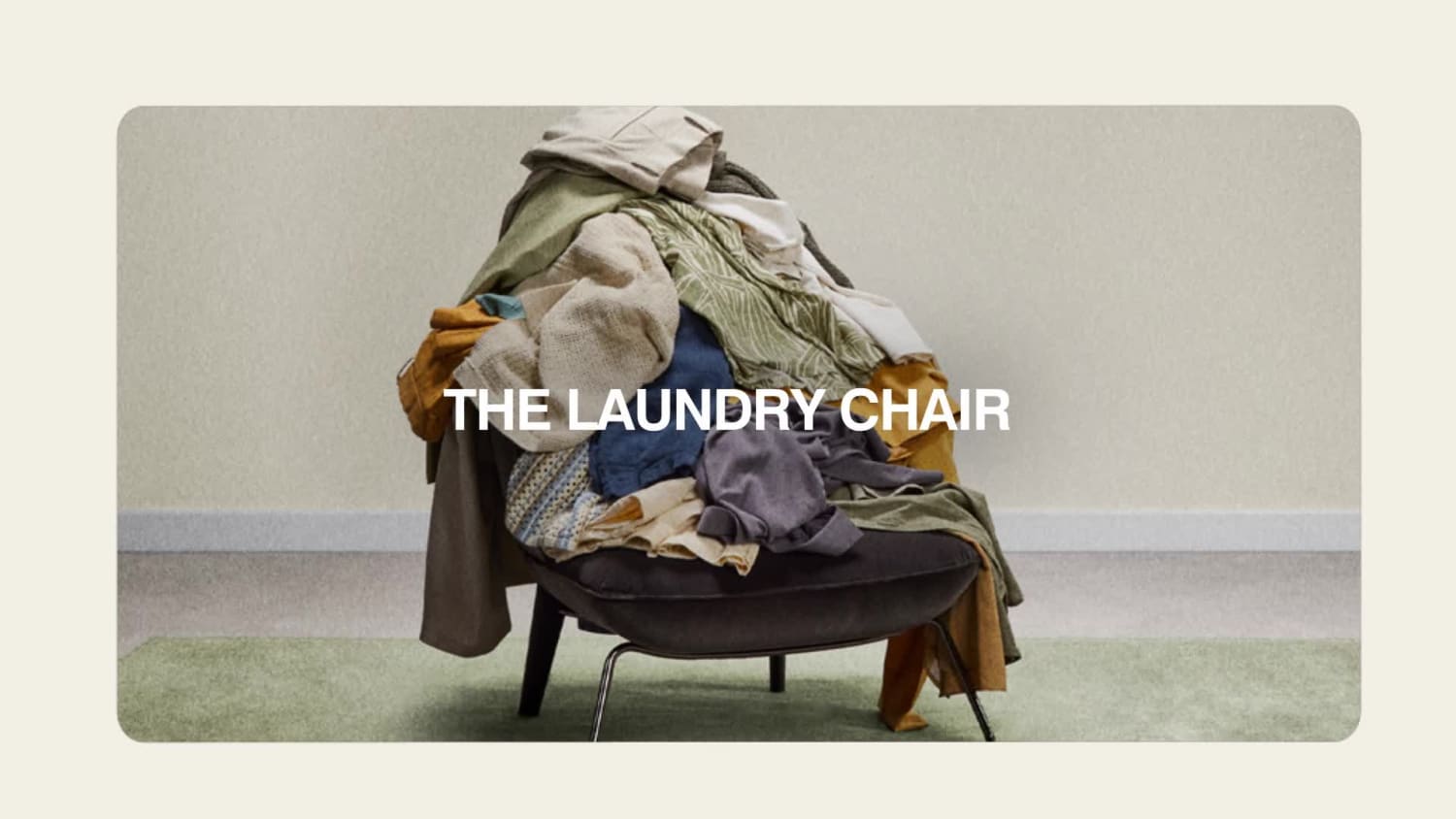The Wash Less Project boldly challenges category conventions by having a washing machine brand advocate for washing less. We transformed a universal guilty secret - the "laundry chair" where clothes pile up between washes - into a revolutionary design statement that makes sustainable behavior aspirational.
The Wash Less Project
The first chair designed to help people wash less
Client
- Beko Europe
Office
- Milan

Michele Picci
Group CCO of VML Italy
We were fighting against the deeply ingrained, environmentally damaging habit of over-washing clothes, a paradox where 71% of Italians cared about the environment but 87% over-laundered. Our enemy was the "laundry chair" – a symbol of hidden guilt and unsustainable behavior. We fought for a future where sustainability wasn't a sacrifice, but an aspirational, stylish choice, transforming an guilty secret into a proud design statement. We aimed to prove a washing machine brand could credibly advocate for less washing, shifting from consumption to conscious living.
The "laundry chair" insight was everything. Our research revealed that 58% of Italians had this designated spot for worn-but-not-dirty clothes, with 74% hiding it from guests. This tension – between environmental concern and a secret, unsustainable habit – was the spark. It showed us that people wanted to be more sustainable but lacked an elegant solution, creating a profound opportunity to transform a universal guilty secret into a proud, sustainable statement.
We partnered with 2 Italian design icons to reimagine the "laundry chair" as design furniture. The resulting piece combines innovative materials with striking design. Crafted with self-cleaning, recycled fabric and an elegant antler-inspired design, it actively encourages mindful laundry habits, making sustainable living stylish and visible.
We are growing Whirlpool's brand perception as a leader in sustainability, with 89.68% believing Whirlpool helps them act more sustainably (+14% increase) and 91.13% finding it admirable that a washing machine brand encourages less washing. We anticipate significant growth in environmental impact, with 70.2% of users willing to reduce laundry by one cycle weekly, potentially saving 1679.2 liters of water and 10.1 kg of CO2 annually per household.







